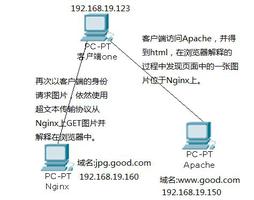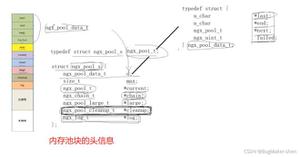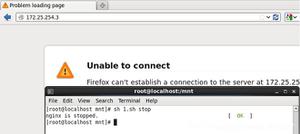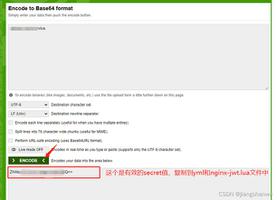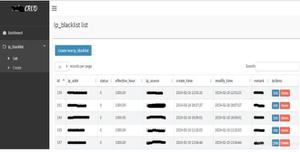PythonTheVeryHighLevelLayer
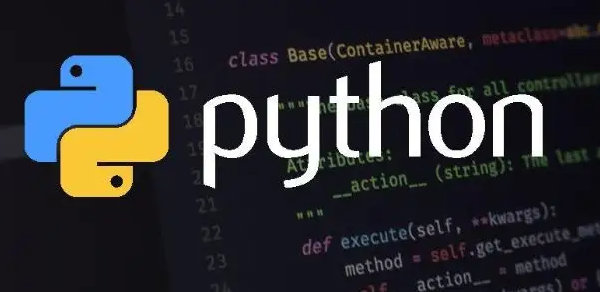
The functions in this chapter will let you execute Python source code given in a
file or a buffer, but they will not let you interact in a more detailed way with
the interpreter.
Several of these functions accept a start symbol from the grammar as a
parameter. The available start symbols are Py_eval_input,
Py_file_input, and Py_single_input. These are described
following the functions which accept them as parameters.
Note also that several of these functions take FILE* parameters. One
particular issue which needs to be handled carefully is that the FILE
structure for different C libraries can be different and incompatible. Under
Windows (at least), it is possible for dynamically linked extensions to actually
use different libraries, so care should be taken that FILE* parameters
are only passed to these functions if it is certain that they were created by
the same library that the Python runtime is using.
int
Py_Main(int argc, wchar_t **argv)¶The main program for the standard interpreter. This is made available for
programs which embed Python. The argc and argv parameters should be
prepared exactly as those which are passed to a C program's
main()function (converted to wchar_t according to the user's locale). It is
important to note that the argument list may be modified (but the contents of
the strings pointed to by the argument list are not). The return value will
be
0if the interpreter exits normally (i.e., without an exception),1if the interpreter exits due to an exception, or2if the parameterlist does not represent a valid Python command line.
Note that if an otherwise unhandled
SystemExitis raised, thisfunction will not return
1, but exit the process, as long asPy_InspectFlagis not set.
int
PyRun_AnyFile(FILE *fp, const char *filename)¶This is a simplified interface to
PyRun_AnyFileExFlags()below, leavingcloseit set to
0and flags set toNULL.
int
PyRun_AnyFileFlags(FILE *fp, const char *filename, PyCompilerFlags *flags)¶This is a simplified interface to
PyRun_AnyFileExFlags()below, leavingthe closeit argument set to
0.
int
PyRun_AnyFileEx(FILE *fp, const char *filename, int closeit)¶This is a simplified interface to
PyRun_AnyFileExFlags()below, leavingthe flags argument set to
NULL.
int
PyRun_AnyFileExFlags(FILE *fp, const char *filename, int closeit, PyCompilerFlags *flags)¶If fp refers to a file associated with an interactive device (console or
terminal input or Unix pseudo-terminal), return the value of
PyRun_InteractiveLoop(), otherwise return the result ofPyRun_SimpleFile(). filename is decoded from the filesystemencoding (
sys.getfilesystemencoding()). If filename isNULL, thisfunction uses
"???"as the filename.
int
PyRun_SimpleString(const char *command)¶This is a simplified interface to
PyRun_SimpleStringFlags()below,leaving the
PyCompilerFlags* argument set toNULL.
int
PyRun_SimpleStringFlags(const char *command, PyCompilerFlags *flags)¶Executes the Python source code from command in the
__main__moduleaccording to the flags argument. If
__main__does not already exist, itis created. Returns
0on success or-1if an exception was raised. Ifthere was an error, there is no way to get the exception information. For the
meaning of flags, see below.
Note that if an otherwise unhandled
SystemExitis raised, thisfunction will not return
-1, but exit the process, as long asPy_InspectFlagis not set.
int
PyRun_SimpleFile(FILE *fp, const char *filename)¶This is a simplified interface to
PyRun_SimpleFileExFlags()below,leaving closeit set to
0and flags set toNULL.
int
PyRun_SimpleFileEx(FILE *fp, const char *filename, int closeit)¶This is a simplified interface to
PyRun_SimpleFileExFlags()below,leaving flags set to
NULL.
int
PyRun_SimpleFileExFlags(FILE *fp, const char *filename, int closeit, PyCompilerFlags *flags)¶Similar to
PyRun_SimpleStringFlags(), but the Python source code is readfrom fp instead of an in-memory string. filename should be the name of
the file, it is decoded from the filesystem encoding
(
sys.getfilesystemencoding()). If closeit is true, the file isclosed before PyRun_SimpleFileExFlags returns.
注解
On Windows, fp should be opened as binary mode (e.g.
fopen(filename,"rb").Otherwise, Python may not handle script file with LF line ending correctly.
int
PyRun_InteractiveOne(FILE *fp, const char *filename)¶This is a simplified interface to
PyRun_InteractiveOneFlags()below,leaving flags set to
NULL.
int
PyRun_InteractiveOneFlags(FILE *fp, const char *filename, PyCompilerFlags *flags)¶Read and execute a single statement from a file associated with an
interactive device according to the flags argument. The user will be
prompted using
sys.ps1andsys.ps2. filename is decoded from thefilesystem encoding (
sys.getfilesystemencoding()).Returns
0when the input wasexecuted successfully,
-1if there was an exception, or an error codefrom the
errcode.hinclude file distributed as part of Python ifthere was a parse error. (Note that
errcode.his not included byPython.h, so must be included specifically if needed.)
int
PyRun_InteractiveLoop(FILE *fp, const char *filename)¶This is a simplified interface to
PyRun_InteractiveLoopFlags()below,leaving flags set to
NULL.
int
PyRun_InteractiveLoopFlags(FILE *fp, const char *filename, PyCompilerFlags *flags)¶Read and execute statements from a file associated with an interactive device
until EOF is reached. The user will be prompted using
sys.ps1andsys.ps2. filename is decoded from the filesystem encoding(
sys.getfilesystemencoding()). Returns0at EOF or a negativenumber upon failure.
int
(*PyOS_InputHook)(void)¶Can be set to point to a function with the prototype
intfunc(void). The function will be called when Python'sinterpreter prompt is about to become idle and wait for user input
from the terminal. The return value is ignored. Overriding this
hook can be used to integrate the interpreter's prompt with other
event loops, as done in the
Modules/_tkinter.cin thePython source code.
char*
(*PyOS_ReadlineFunctionPointer)(FILE *, FILE *, const char *)¶Can be set to point to a function with the prototype
char*func(FILE*stdin,FILE*stdout,char*prompt),overriding the default function used to read a single line of input
at the interpreter's prompt. The function is expected to output
the string prompt if it's not
NULL, and then read a line ofinput from the provided standard input file, returning the
resulting string. For example, The
readlinemodule setsthis hook to provide line-editing and tab-completion features.
The result must be a string allocated by
PyMem_RawMalloc()orPyMem_RawRealloc(), orNULLif an error occurred.在 3.4 版更改: The result must be allocated by
PyMem_RawMalloc()orPyMem_RawRealloc(), instead of being allocated byPyMem_Malloc()orPyMem_Realloc().
struct _node*
PyParser_SimpleParseString(const char *str, int start)¶This is a simplified interface to
PyParser_SimpleParseStringFlagsFilename()below, leaving filename setto
NULLand flags set to0.
struct _node*
PyParser_SimpleParseStringFlags(const char *str, int start, int flags)¶This is a simplified interface to
PyParser_SimpleParseStringFlagsFilename()below, leaving filename setto
NULL.
struct _node*
PyParser_SimpleParseStringFlagsFilename(const char *str, const char *filename, int start, int flags)¶Parse Python source code from str using the start token start according to
the flags argument. The result can be used to create a code object which can
be evaluated efficiently. This is useful if a code fragment must be evaluated
many times. filename is decoded from the filesystem encoding
(
sys.getfilesystemencoding()).
struct _node*
PyParser_SimpleParseFile(FILE *fp, const char *filename, int start)¶This is a simplified interface to
PyParser_SimpleParseFileFlags()below,leaving flags set to
0.
struct _node*
PyParser_SimpleParseFileFlags(FILE *fp, const char *filename, int start, int flags)¶Similar to
PyParser_SimpleParseStringFlagsFilename(), but the Pythonsource code is read from fp instead of an in-memory string.
PyObject*
PyRun_String(const char *str, int start, PyObject *globals, PyObject *locals)¶- Return value: New reference.
This is a simplified interface to
PyRun_StringFlags()below, leavingflags set to
NULL.
PyObject*
PyRun_StringFlags(const char *str, int start, PyObject *globals, PyObject *locals, PyCompilerFlags *flags)¶- Return value: New reference.
Execute Python source code from str in the context specified by the
objects globals and locals with the compiler flags specified by
flags. globals must be a dictionary; locals can be any object
that implements the mapping protocol. The parameter start specifies
the start token that should be used to parse the source code.
Returns the result of executing the code as a Python object, or
NULLif anexception was raised.
PyObject*
PyRun_File(FILE *fp, const char *filename, int start, PyObject *globals, PyObject *locals)¶- Return value: New reference.
This is a simplified interface to
PyRun_FileExFlags()below, leavingcloseit set to
0and flags set toNULL.
PyObject*
PyRun_FileEx(FILE *fp, const char *filename, int start, PyObject *globals, PyObject *locals, int closeit)¶- Return value: New reference.
This is a simplified interface to
PyRun_FileExFlags()below, leavingflags set to
NULL.
PyObject*
PyRun_FileFlags(FILE *fp, const char *filename, int start, PyObject *globals, PyObject *locals, PyCompilerFlags *flags)¶- Return value: New reference.
This is a simplified interface to
PyRun_FileExFlags()below, leavingcloseit set to
0.
PyObject*
PyRun_FileExFlags(FILE *fp, const char *filename, int start, PyObject *globals, PyObject *locals, int closeit, PyCompilerFlags *flags)¶- Return value: New reference.
Similar to
PyRun_StringFlags(), but the Python source code is read fromfp instead of an in-memory string. filename should be the name of the file,
it is decoded from the filesystem encoding (
sys.getfilesystemencoding()).If closeit is true, the file is closed before
PyRun_FileExFlags()returns.
PyObject*
Py_CompileString(const char *str, const char *filename, int start)¶- Return value: New reference.
This is a simplified interface to
Py_CompileStringFlags()below, leavingflags set to
NULL.
PyObject*
Py_CompileStringFlags(const char *str, const char *filename, int start, PyCompilerFlags *flags)¶- Return value: New reference.
This is a simplified interface to
Py_CompileStringExFlags()below, withoptimize set to
-1.
PyObject*
Py_CompileStringObject(const char *str, PyObject *filename, int start, PyCompilerFlags *flags, int optimize)¶- Return value: New reference.
Parse and compile the Python source code in str, returning the resulting code
object. The start token is given by start; this can be used to constrain the
code which can be compiled and should be
Py_eval_input,Py_file_input, orPy_single_input. The filename specified byfilename is used to construct the code object and may appear in tracebacks or
SyntaxErrorexception messages. This returnsNULLif the codecannot be parsed or compiled.
The integer optimize specifies the optimization level of the compiler; a
value of
-1selects the optimization level of the interpreter as given by-Ooptions. Explicit levels are0(no optimization;__debug__is true),1(asserts are removed,__debug__is false)or
2(docstrings are removed too).3.4 新版功能.
PyObject*
Py_CompileStringExFlags(const char *str, const char *filename, int start, PyCompilerFlags *flags, int optimize)¶- Return value: New reference.
Like
Py_CompileStringObject(), but filename is a byte stringdecoded from the filesystem encoding (
os.fsdecode()).3.2 新版功能.
PyObject*
PyEval_EvalCode(PyObject *co, PyObject *globals, PyObject *locals)¶- Return value: New reference.
This is a simplified interface to
PyEval_EvalCodeEx(), with justthe code object, and global and local variables. The other arguments are
set to
NULL.
PyObject*
PyEval_EvalCodeEx(PyObject *co, PyObject *globals, PyObject *locals, PyObject *const *args, int argcount, PyObject *const *kws, int kwcount, PyObject *const *defs, int defcount, PyObject *kwdefs, PyObject *closure)¶- Return value: New reference.
Evaluate a precompiled code object, given a particular environment for its
evaluation. This environment consists of a dictionary of global variables,
a mapping object of local variables, arrays of arguments, keywords and
defaults, a dictionary of default values for keyword-only arguments and a closure tuple of cells.
PyFrameObject¶The C structure of the objects used to describe frame objects. The
fields of this type are subject to change at any time.
PyObject*
PyEval_EvalFrame(PyFrameObject *f)¶- Return value: New reference.
Evaluate an execution frame. This is a simplified interface to
PyEval_EvalFrameEx(), for backward compatibility.
PyObject*
PyEval_EvalFrameEx(PyFrameObject *f, int throwflag)¶- Return value: New reference.
This is the main, unvarnished function of Python interpretation. It is
literally 2000 lines long. The code object associated with the execution
frame f is executed, interpreting bytecode and executing calls as needed.
The additional throwflag parameter can mostly be ignored - if true, then
it causes an exception to immediately be thrown; this is used for the
throw()methods of generator objects.在 3.4 版更改: 该函数现在包含一个调试断言,用以确保不会静默地丢弃活动的异常。
int
PyEval_MergeCompilerFlags(PyCompilerFlags *cf)¶This function changes the flags of the current evaluation frame, and returns
true on success, false on failure.
int
Py_eval_input¶The start symbol from the Python grammar for isolated expressions; for use with
Py_CompileString().
int
Py_file_input¶The start symbol from the Python grammar for sequences of statements as read
from a file or other source; for use with
Py_CompileString(). This isthe symbol to use when compiling arbitrarily long Python source code.
int
Py_single_input¶The start symbol from the Python grammar for a single statement; for use with
Py_CompileString(). This is the symbol used for the interactiveinterpreter loop.
struct
PyCompilerFlags¶This is the structure used to hold compiler flags. In cases where code is only
being compiled, it is passed as
intflags, and in cases where code is beingexecuted, it is passed as
PyCompilerFlags*flags. In this case,from__future__import can modify flags.
Whenever
PyCompilerFlags*flagsisNULL,cf_flagsis treated asequal to
0, and any modification due tofrom__future__importisdiscarded.
structPyCompilerFlags{
intcf_flags;
}
int
CO_FUTURE_DIVISION¶This bit can be set in flags to cause division operator
/to beinterpreted as "true division" according to PEP 238.

